Are you passionate about social justice and eager to make a difference in your community? Writing a compelling grant request letter can be a powerful way to secure funding for your initiatives. In this article, we'll walk you through a simple yet effective template that highlights your mission while drawing attention to the critical need for support. Join us as we explore the essential elements of crafting a persuasive letter that can help turn your vision into reality.
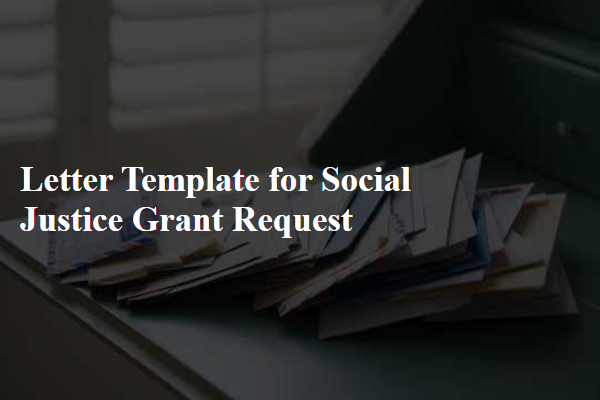
Introduction and Purpose
In the United States, social justice initiatives increasingly address racial equality, gender equity, and economic disparities, aiming for systemic change. Numerous organizations, such as the American Civil Liberties Union (ACLU), focus on advocacy, policy reform, and community education to eliminate unjust practices. These initiatives seek funding to enhance outreach programs and legal support, impacting marginalized communities, particularly in urban areas experiencing high levels of poverty and discrimination, like Michael Brown's Ferguson or Flint's water crisis. Targeted funding enables the development of workshops, legal clinics, and educational resources essential for fostering societal change and promoting equitable opportunities for all citizens. Outreach initiatives often include partnerships with local schools and community centers to ensure access to necessary resources.
Background and Need
Communities across the United States face systemic inequalities, particularly in areas such as education, healthcare, and economic opportunity. According to the U.S. Census Bureau, poverty rates for Black and Hispanic households remain significantly higher, at approximately 18.8% and 15.7% respectively, compared to the national average of 11.4% in 2021. In urban centers like Detroit and Chicago, violence and crime rates have risen dramatically, further exacerbating the struggle for individuals and families. These factors require organizations dedicated to social justice to address pressing issues, such as access to quality education and equitable healthcare. Additionally, the COVID-19 pandemic has disproportionately affected marginalized communities, leading to increased unemployment and mental health challenges, amplifying the urgency for targeted interventions and support systems. By securing grant funding, our organization aims to implement programs that foster economic empowerment, increase access to essential services, and promote community engagement.
Project Description and Goals
A community initiative focused on reducing food insecurity in urban areas aims to provide fresh produce to underserved neighborhoods, particularly in places like Detroit, Michigan, where over 30% of residents live below the poverty line. This project seeks to establish a network of local gardens and partnerships with farmers' markets, targeting families and individuals facing economic hardships. The goal is to increase access to nutritious food options while promoting sustainable agricultural practices. Educational workshops will be held to inform community members about healthy eating, gardening techniques, and the importance of locally sourced food. By engaging over 500 participants in the first year, the project aims to foster a sense of community ownership and empowerment, addressing the broader issues of inequality and health disparities resulting from systemic poverty.
Community Impact and Benefits
A community health initiative in underserved areas aims to provide access to preventive care services, addressing disparities in health outcomes. The program, launched in 2023, targets neighborhoods in Philadelphia, Pennsylvania, with a high prevalence of chronic illnesses such as diabetes and hypertension. By offering free screenings, health education workshops, and resources for healthy lifestyle choices, the initiative seeks to empower residents and improve overall well-being. Collaborations with local organizations, including the Community Health Coalition and the Philadelphia Health Department, ensure that the services reach those most in need. Measurable outcomes are projected, such as a 30% increase in residents attending regular health check-ups within the first year of the program.
Budget and Funding Request
A well-structured budget proposal emphasizing the social justice initiative can significantly enhance the funding request's impact. Outline specific categories such as personnel costs, including salaries for community outreach coordinators, estimated at $50,000 annually, and program expenses, such as workshop materials and venue rentals, projected to total $20,000 over the grant period. Also, highlight outreach efforts, including digital campaigns on social media platforms like Facebook and Instagram, with targeted advertising budgets of around $5,000 to increase community engagement. Administrative costs like utilities and office supplies can be estimated at $10,000. Including a contingency fund, approximately 10% of the total budget, accounts for unforeseen expenses. When presenting statistics, cite sources from reputable organizations, such as the U.S. Census Bureau, demonstrating the community's need for social justice initiatives.

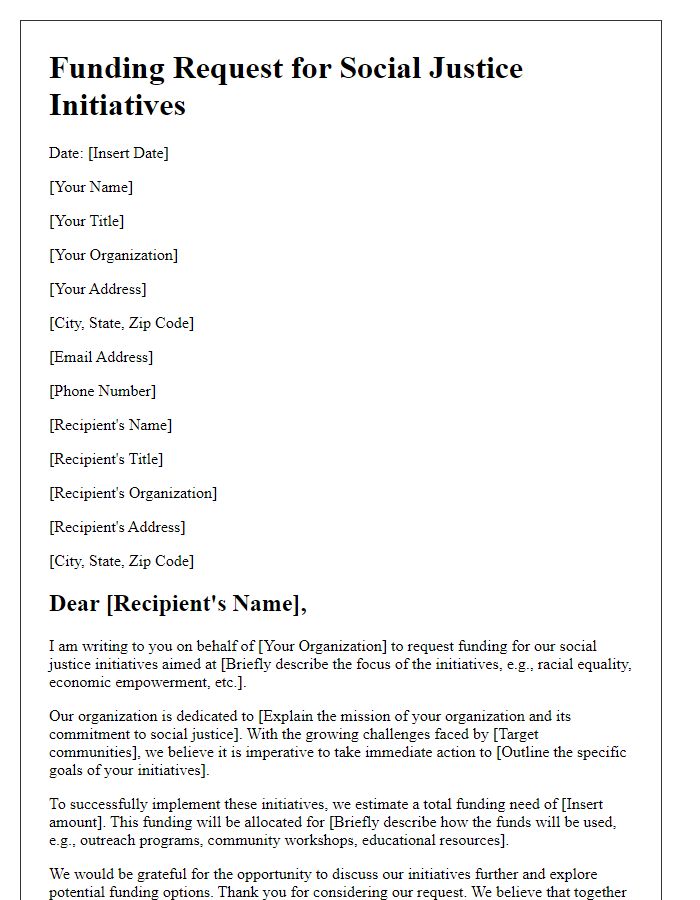
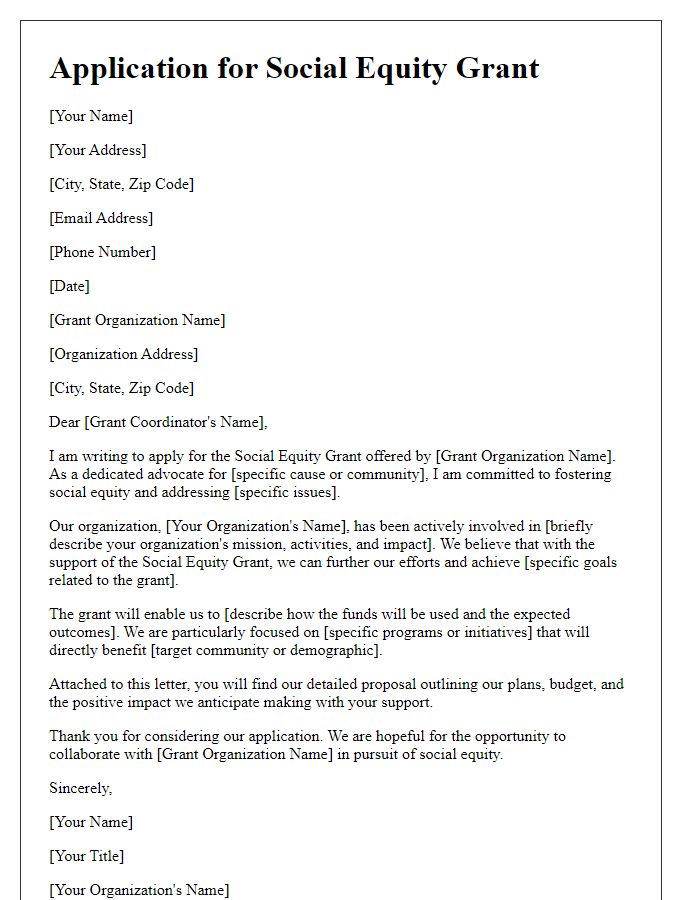
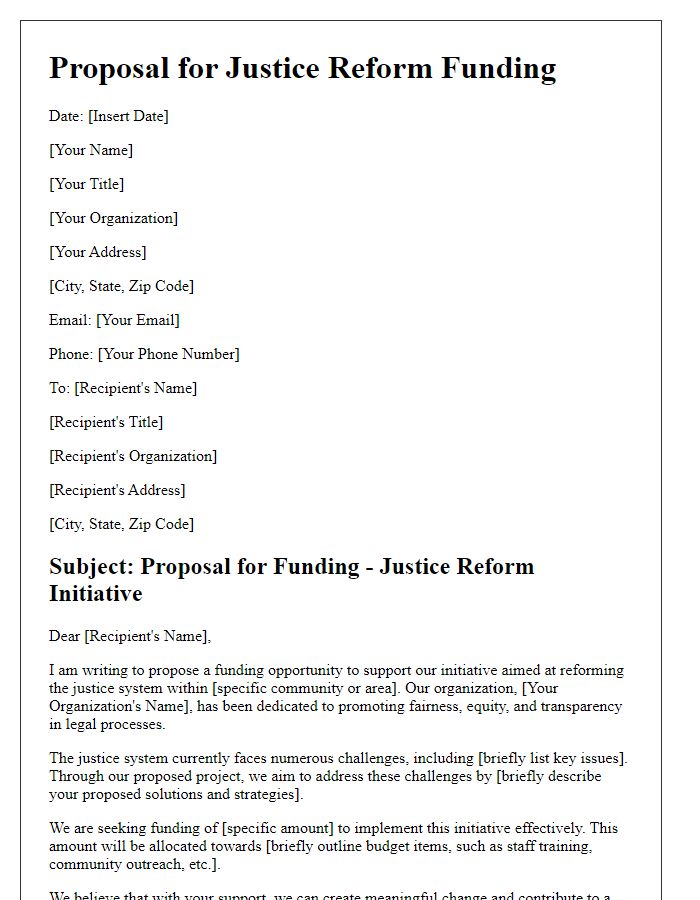
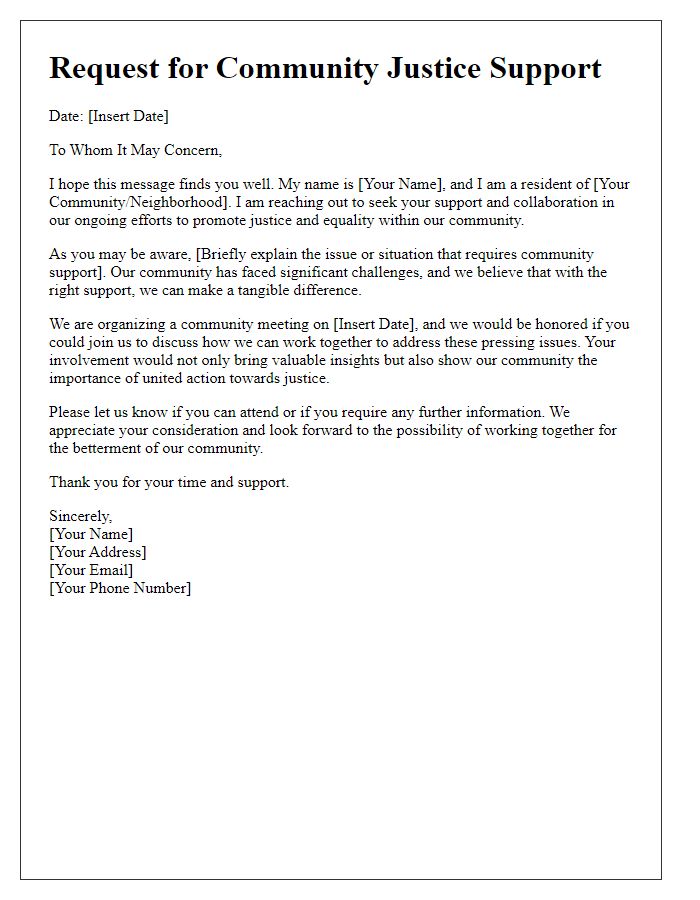
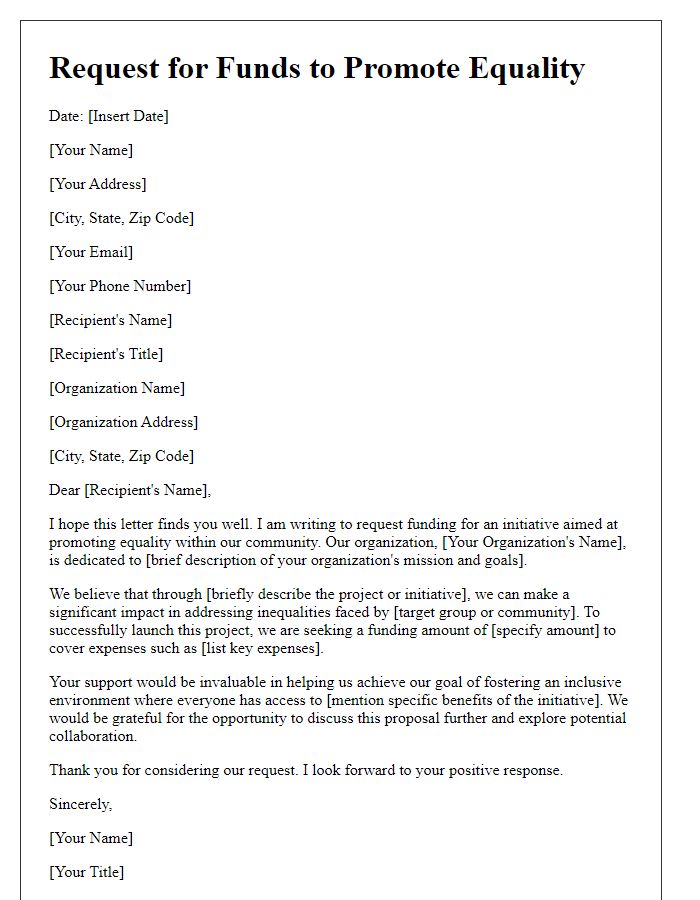

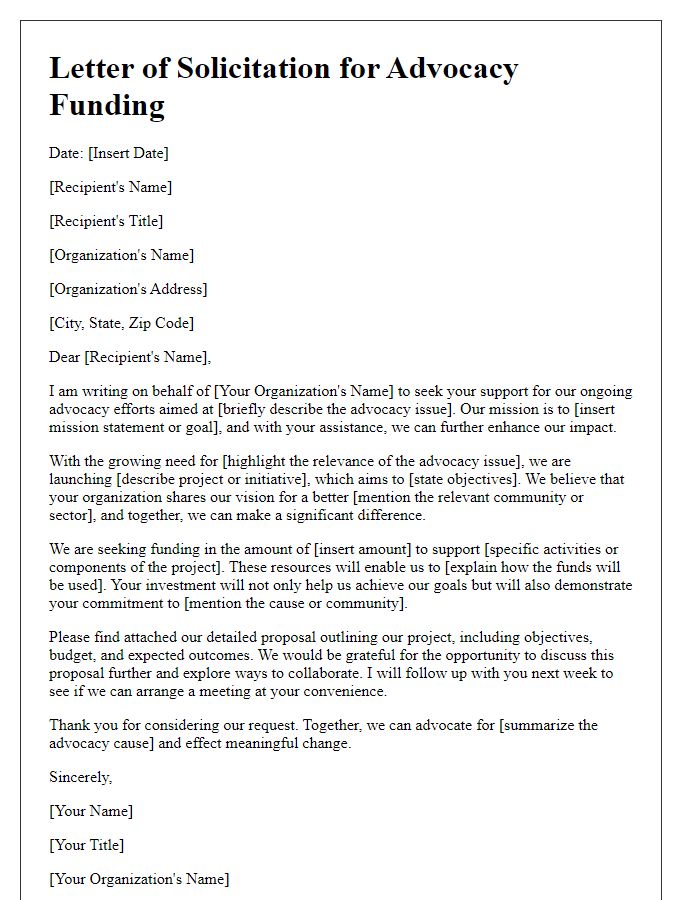
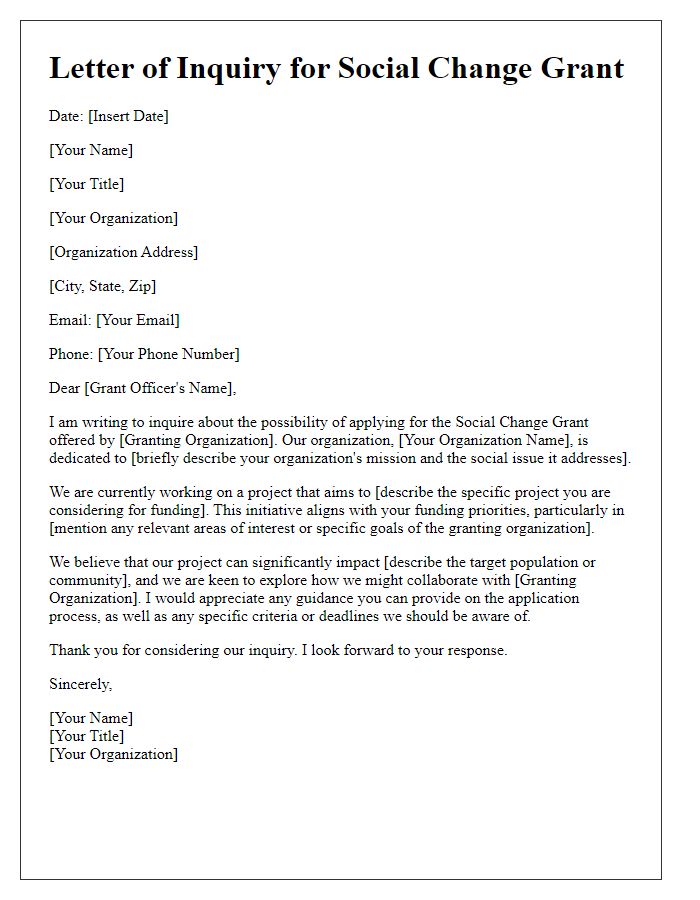
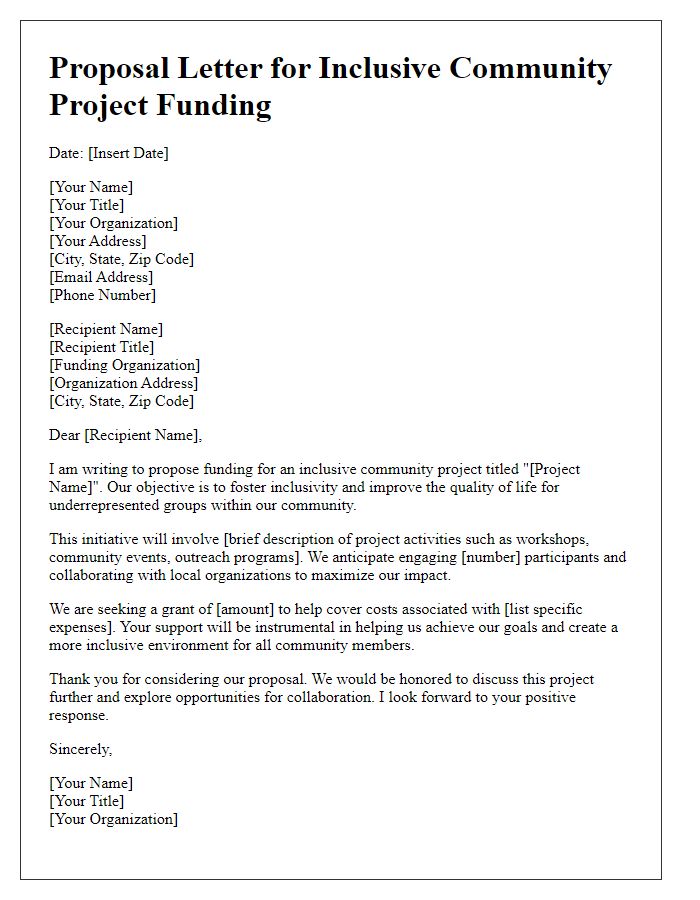
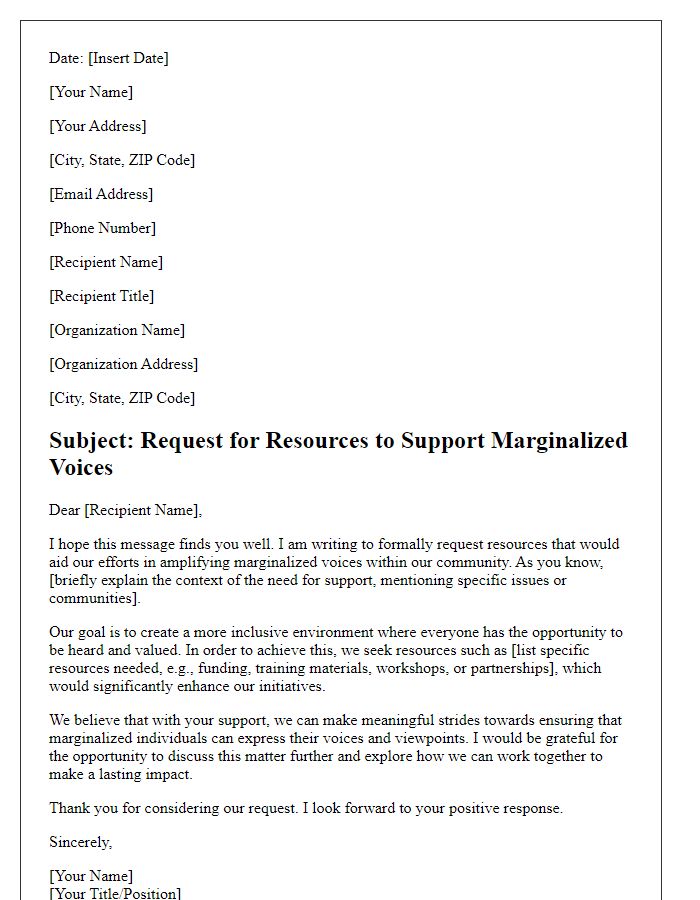


Comments